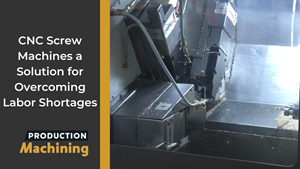Advice for Job Seekers
Be specific in market, role and ideal employers and watch your job search networking and career prospects take off.
I have totally changed my approach with job seekers who reach out asking for career advice or networking assistance in finding their next role.
The further I get into my career, the more of these requests I receive. Former colleagues, people referred to me by others in my network, friends in career transition, children of my friends and friends of my children, I have several meetings with people of these sorts each month.
Before my change in approach, the routine went like this. The email came from the job seeker or their referral source asking if I would meet. Sixty minutes got carved out on the calendar and the meeting date arrived.
- Me (following small talk): So, tell me what you’re up to.
- Job seeker: I want a new challenge where I can put my skills in [fill in the blank] to work for a great organization.
- Me: Have you put any thought into what kind of a job or organization?
- Job seeker: Really, I’m open to any opportunity.
They were trying to be amiable, worried that if they were too specific they would come across as arrogant or over-confident, worried that if what they told me they were looking for was different from what I had in mind they would cost themselves a potential opportunity. But by being noncommittal, they made it nearly impossible for me to help them. I can’t help them if they don’t tell me what they want. Why?
I won’t speak for everyone’s brain, but mine doesn’t work that way. Going on nothing more than a vague depiction of where they want to take their career, I find myself grasping at thin air. Following the small talk and chit-chat, I would do my best to offer a few suggestions, possibly make a few referrals to people in my network and promise to keep my ears open should I hear of a position for which they might be a fit. In truth, the odds they would ever hear from me were near zero. Not because I didn’t want to help. But because I didn’t know how I could.
In the last year, I’ve taken a new approach. Rather than politely closing the meeting and wishing them luck, I tell them how they should be approaching meetings such as these.
First, I tell them to be specific. The irony of their politeness in saying they’re open to any opportunity, hoping not to cost themselves an opportunity, is that they make it very difficult to help, which in turn could likely cost them an opportunity. Which job seeker am I better able to assist? The one who says they want to put their skills to work for a great organization or the one that says they’ve always dreamed of working for a world-class manufacturer, private equity company, investment bank, media company, events management company, sports franchise, whatever. If they say manufacturing, my mind goes to the manufacturing companies in the region. If they say private equity or finance, thoughts go to people in my network working in those fields and so on.
Then I tell them to be precise about the role they want within that specific field. If it’s manufacturing, for instance, do they see themselves in business development, marketing, operations, customer service and so on. Their answer will push my thinking to people in my network who have responsibility for individuals in those roles, or even to a contact who might have an open position that could fit the job seeker.
Finally, I ask them to list specific companies or organizations in their target field that they would love to work in. Looking through their list, I’ll inevitably know someone in a leadership role for several of the employers on their target list.
Armed with an understanding of which market, which position and which organizations pique their interest, I can dig in deeper to each of these, ask more detailed questions and make some solid connections for them.
I also tell them it’s okay to have more than one set of answers. In other words, if they are truly open to multiple markets and positions, they can have different versions of their target lists. Say a young accountant is looking for a new role in manufacturing or investment banking and doesn’t want to close the door on one or the other just yet. They can have a different set of target markets, roles and organizations dependent upon who they’re meeting with.
For example, if their networking meeting is with someone in the manufacturing sector, then they can say their ideal opportunity is as a staff accountant for an advanced manufacturing business and bring along a list of ideal manufacturing employers they would be interested in meeting. If the meeting is with an investment banker, then they can say they’re interested in a position as an analyst in an investment bank, private equity or venture capital organization and list several specific organizations in these fields and in which they have interest.
Job seekers wanting to make the most out of their networking ought to heed this advice. Don’t go into the networking meeting with a vague set of goals and targets. The person on the other side of the desk won’t be able to help. Be specific in market, role and ideal employers and watch your job search networking and career prospects take off.
Related Content
Applying a Healthy Approach to Employee Investment
Service Center Metals’ on-site health center offers its employees and their families free same-day health care and, in return, the employer is gaining many benefits including a healthier workforce and attracting potential employees.
Read More2023 Emerging Leaders Strengthen Their Staffs, Solve Problems
Superb critical thinking, top-notch leadership skills and a passion for building a strong team are a few of the common traits held by this year’s five Production Machining Emerging Leader award winners.
Read MoreThe Value of Aligning Efforts to Promote Manufacturing Careers
Successfully building the next generation of manufacturers requires a team effort between employers, educators and parents. Each of these three groups has a tremendous impact on young people’s career decisions. Without the support of all three, we are unlikely to bridge the skilled labor shortage that threatens the future growth of our industry.
Read MoreVideo Tech Brief: CNC Screw Machines a Solution for Overcoming Labor Shortages
CNC screw machines can exceed job shop productivity and enable manufacturers to overcome perpetual employment gaps.
Read MoreRead Next
Do You Have Single Points of Failure?
Plans need to be in place before a catastrophic event occurs.
Read MoreA Tooling Workshop Worth a Visit
Marubeni Citizen-Cincom’s tooling and accessory workshop offers a chance to learn more about ancillary devices that can boost machining efficiency and capability.
Read MoreSeeing Automated Workpiece Measurement in Real Time
User-friendly inspection software for CNC machining centers was shown at IMTS 2024 monitoring measurements between and after machining while performing SPC based on recorded measurement values.
Read More











.jpg;maxWidth=300;quality=90)











